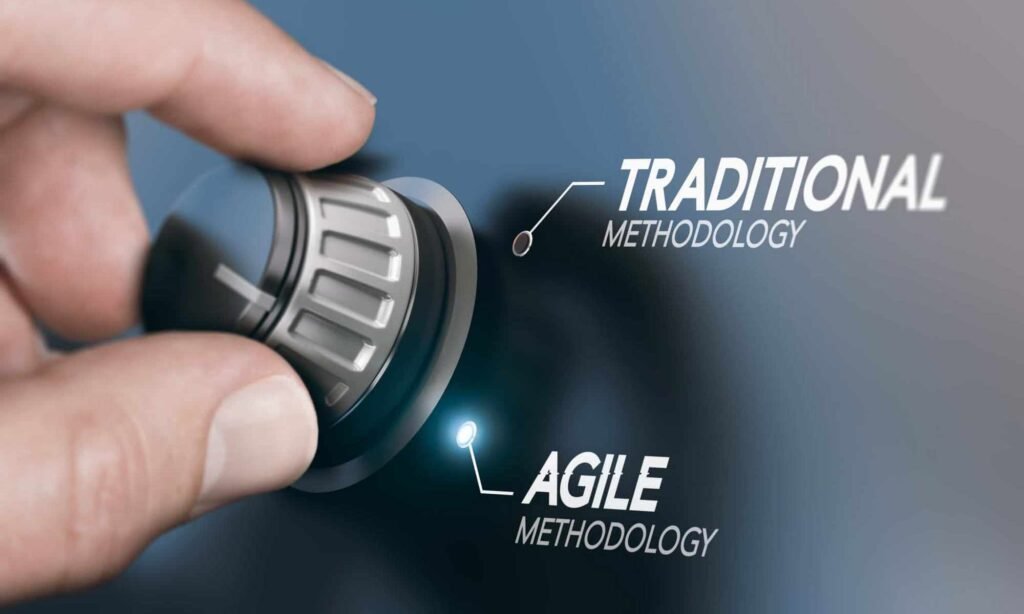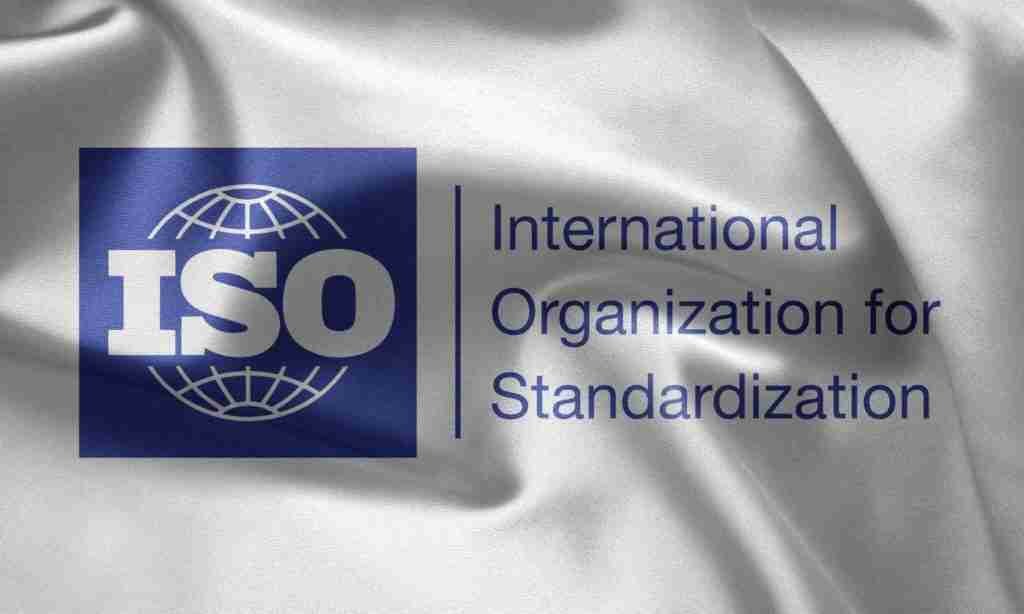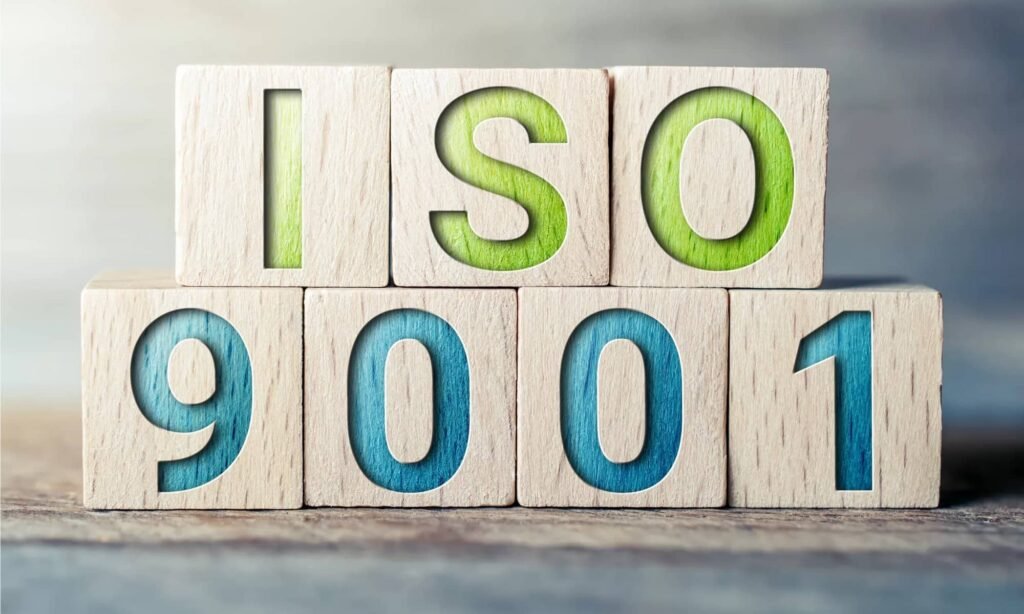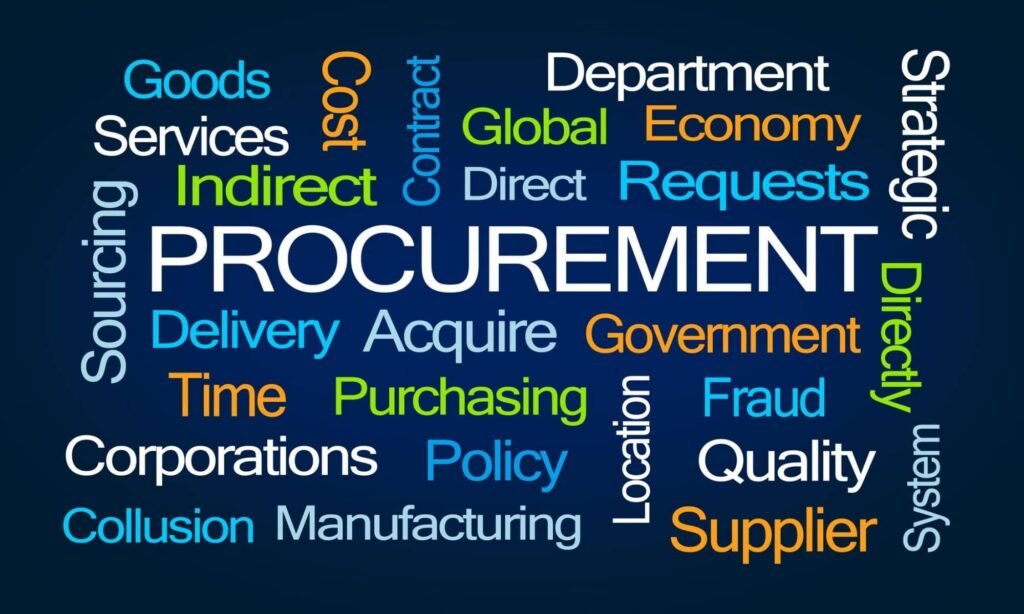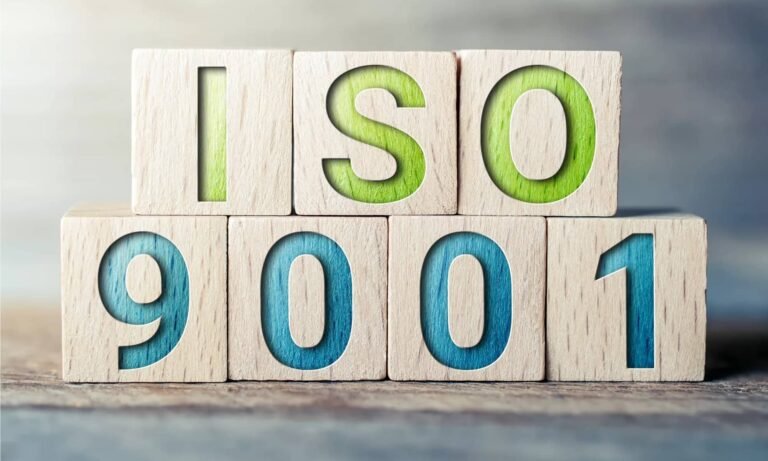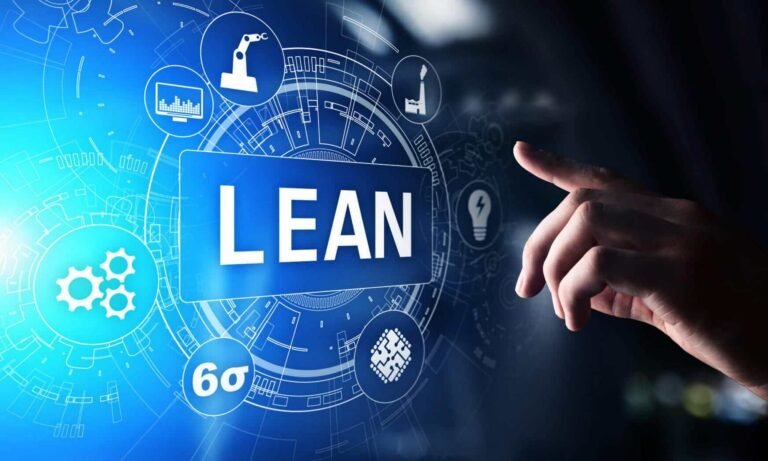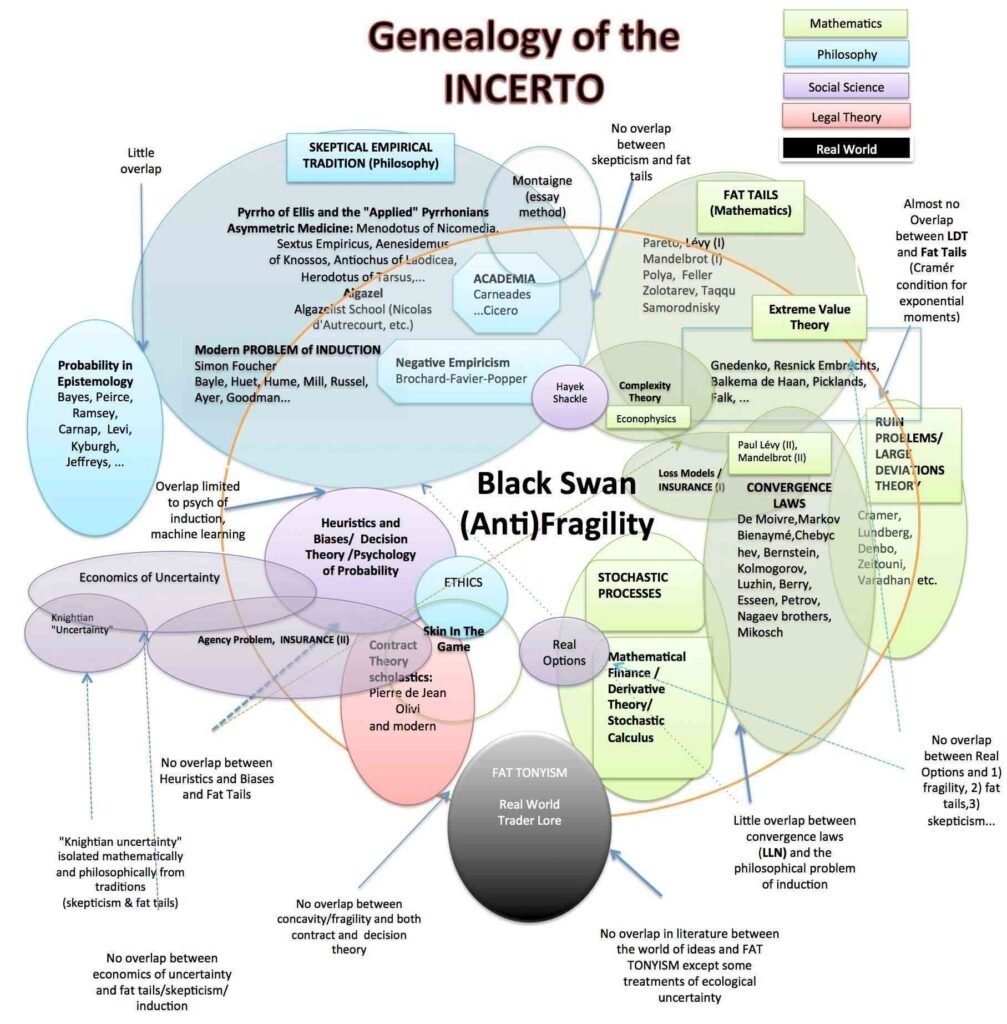
Antifragility is a concept introduced by Nassim Nicholas Taleb, referring to systems that gain strength and enhance their performance when exposed to volatility, disorder and stress.
Unlike resilience, which implies a capacity to withstand shocks or robustness, which denotes stability amidst disturbances, antifragility suggests a proactive ability to not just survive but actively benefit from uncertainty and challenge.
This idea forms part of the broader intellectual framework Taleb developed in his INCERTO (uncertainty) series – a Genealogy of thought spanning Fooled by Randomness, The Black Swan, Antifragile and Skin in the Game.
Through this evolving body of work, Taleb traces how systems, individuals, and institutions can harness unpredictability as a source of strength rather than fragility.
In a business context, antifragile organizations leverage disruptive elements to foster growth, innovate and create value in ways that traditional companies – anchored by rigid structures and predictable pathways – cannot.
In today’s volatile marketplace, organizations face constant challenges, from rapid technological shifts to changing consumer preferences. Antifragility in business means embracing uncertainty rather than avoiding it. Companies that apply antifragile principles are better positioned to respond to market dynamics, turning risks into opportunities. For instance, a diversified revenue model can help absorb shocks in one sector while capitalizing on growth in another.
The implications are substantial. Businesses that foster antifragility gain a competitive edge by promoting innovation and agility. This mindset encourages experimentation, learning from failure, and adapting to change – all of which lead to better solutions and improved offerings. Antifragile strategies also support faster, more strategic decision-making, helping organizations pivot effectively and build lasting value.
The Role of Quality Management
Quality Management plays a pivotal role in nurturing antifragility within organizations. By implementing robust quality management systems (QMS), businesses create a structured framework that not only promotes adherence to standards but also enables continuous improvement and adaptability. Through the integration of principles such as total quality management (TQM) and Six Sigma (6σ), organizations can establish a culture of excellence that supports resilience in the face of challenges.
One key aspect of quality management is continuous improvement, encouraging organizations to assess and refine processes. This iterative approach, central to ISO 9001 and other standards, helps identify weaknesses and capitalize on strengths, fostering adaptation, evolution, and operational excellence. By prioritizing improvement, organizations cultivate a proactive mindset, turning setbacks into strategic growth opportunities and long-term resilience.
Furthermore, fostering a culture that values customer feedback is crucial for reinforcing antifragility. By establishing feedback loops that actively solicit client insights – a practice strongly encouraged by ISO Standards – organizations can better understand customer needs and expectations. This dialogue not only enhances product and service quality but also leads to increased customer loyalty, providing a competitive advantage in turbulent times. The ability to pivot based on real-time feedback is essential for any business aiming to thrive amidst uncertainty.
Moreover, cultivating a quality-centric culture is fundamental to fostering antifragility within an organization. This culture promotes accountability and encourages employees to take ownership of their roles in the quality management process. When team members are invested in quality, they are more likely to embrace challenges and view failures as learning experiences. This perspective shift is vital for developing a resilient organization capable of navigating complex environments.
Lean Management and Antifragility
Lean Management is a systematic method designed to minimize waste without sacrificing productivity. This approach is particularly relevant in the context of antifragility, where organizations harness challenges to achieve growth and innovation. By focusing on streamlining processes and enhancing efficiency, businesses can create an adaptive capacity that is not just about surviving but thriving amidst disruptions.
At the heart of Lean Management lies the principle of continuous improvement, epitomized by the KAIZEN methodology. This philosophy encourages employees at all levels to identify areas for enhancement and implement incremental changes. By fostering a culture where suggestions are welcomed, organizations build resilience. Antifragility emerges as teams actively refine processes and develop solutions that adapt to unexpected shifts in the marketplace.
Another essential aspect of Lean Management is value stream mapping, which visually outlines processes to identify and eliminate waste. By analyzing workflows through this lens, organizations can uncover inefficiencies and streamline operations. This focused examination reveals bottlenecks and sparks innovation, enabling companies to pivot in response to emerging challenges. Improving operational efficiency through these methods helps allocate resources more effectively and supports greater agility.
Together, KAIZEN and value stream mapping exemplify how Lean Management principles contribute to an organization’s antifragility. By instilling a mindset focused on waste reduction and continuous improvement, businesses position themselves to not only withstand adversity but also to seize it as a catalyst for growth. Through these practices, organizations can achieve a state of adaptability that converts potential disruptions into valuable opportunities. In this way, embracing lean methodologies fosters a robust framework for resilience and innovation in the face of uncertainty.
Building an Antifragile Organization
In today’s rapidly evolving business landscape, a strong Corporate Culture rooted in experimentation, accountability, and inclusiveness is essential for cultivating antifragility. Such environments empower employees to innovate, embrace failures as learning opportunities, and adapt to uncertainty – enhancing organizational resilience through diverse, creative problem-solving.
Sustainability further reinforces this cultural foundation and long-term adaptability. By integrating environmental, social, and governance (ESG) factors, companies can better navigate shifting market dynamics, mitigate risks, and strengthen reputation – attracting partners who share their values.
To directly address Supply Chain Fragility, strategic Procurement and effective Supply Chain Management (SCM) further reinforce antifragile business models. By cultivating strong and diverse supplier relationships organizations reduce vulnerability to shocks and build adaptive capacity.
Practices such as responsible sourcing, waste reduction, and end-to-end transparency not only enhance resilience but actively counteract fragility within the supply chain. Prioritizing these elements enables businesses to mitigate disruptions and maintain operational continuity – even under volatile conditions.
Overall, a well-integrated organizational framework fosters innovation and lays the groundwork for lasting Value Creation. Pursuing Business Excellence means aligning operational efficiency with stakeholder engagement and a commitment to continuous improvement. This approach enhances adaptability, allowing organizations to thrive in unpredictable environments while consistently meeting evolving expectations.
Ninja Services
Pragmatic, professional engagement rooted in global experience – Ninja Services to navigate complexity, optimize operations and generate results.
Eric’s Background includes well-developed, solid Core Competencies and he offers tailor-made solutions for both temporary assignments and permanent roles and is available for global travel on a flexible basis.
Contact Eric today for effective support in navigating challenges and driving success through Value Creation.
What’s More
The posts in My Blog feature reflective, story-driven pieces rooted in personal and societal insights.
The topics in My Interests explore abstract, philosophical ideas and their cultural and societal impact.
👁️ 9,036 Views



